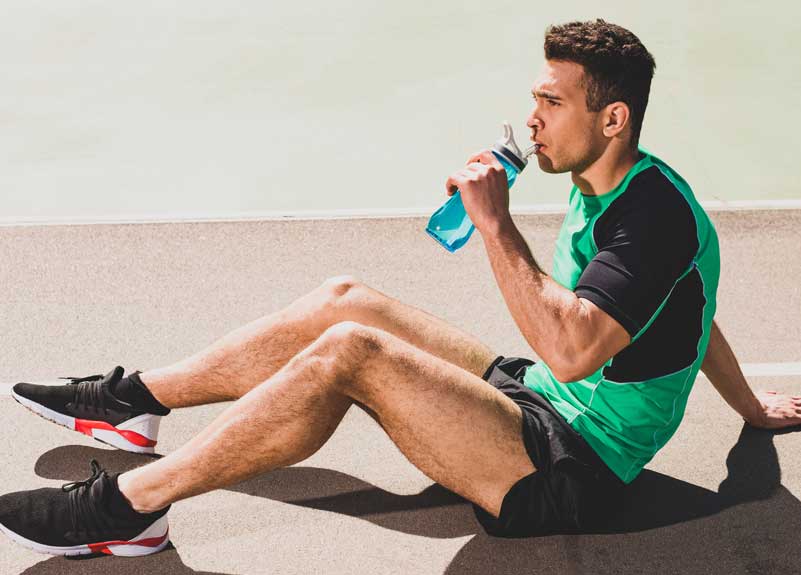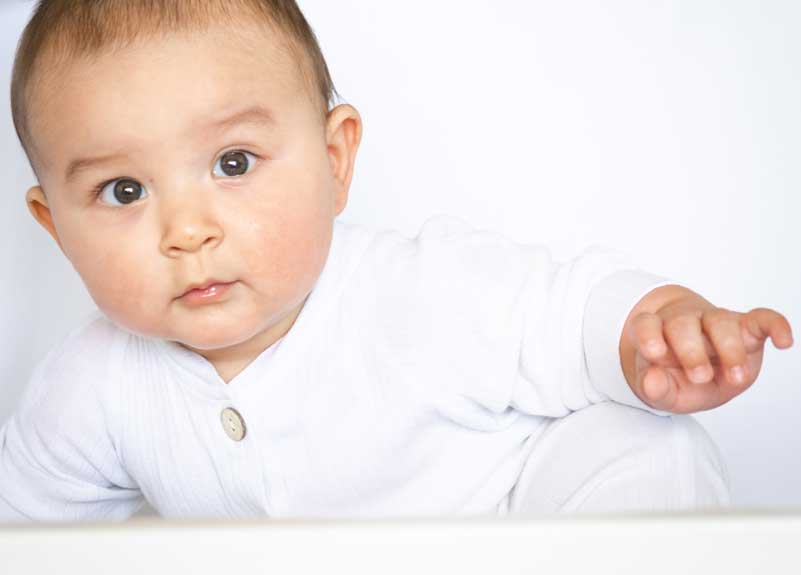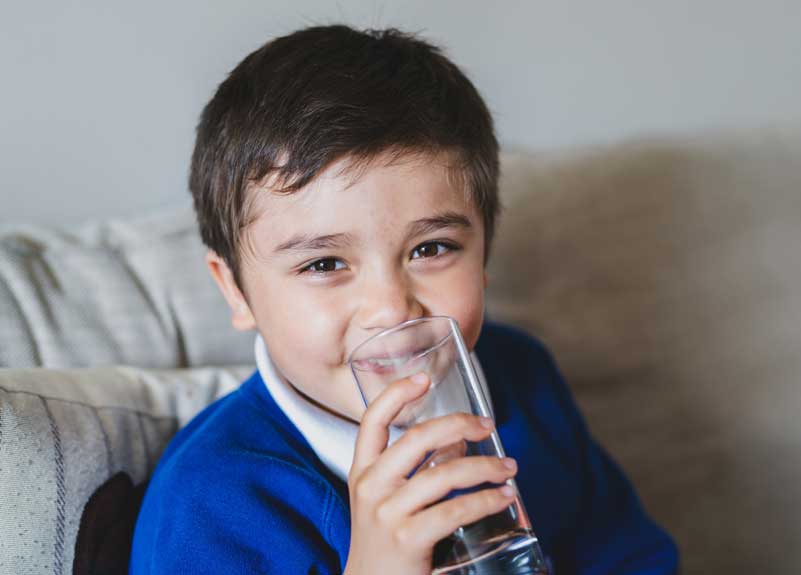Introduction
While plenty of drink options are available, nature has provided us with the best and most abundant source of hydration – plain water. Drinking sufficient amounts of water throughout the day helps keep our bodies functioning optimally, aids digestion, and flushes out toxins from our system. So, make sure to prioritize staying hydrated and drinking plenty of water every day. It’s not only the healthier drinking option but the best form of hydration because it replenishes without extra, unnecessary additions like sugar.
Because our bodies are made up of around 60% water, a hydrated body is a healthier body*. And though drink options may be plentiful, it just so happens that nature provides us with the best hydration option – plain water – in pure abundance. Our water isn’t only the healthier drinking option and the best form of hydration because it replenishes without extra, unnecessary additions like sugar.

Hydration for you
Every action, from waking up to engaging in physical activities like running a marathon, relies on our body’s functionality. Since water is a crucial element for fueling these processes, we lose about 2.8 liters daily. Although 2% may seem insignificant, replacing this water is essential for optimal performance and well-being.
Surprisingly, 49% of adults fail to consume enough water to compensate for these natural losses. Increasing daily water intake is crucial, as insufficient hydration can lead to dehydration and its associated side effects, including poor physical performance, impaired brain function, headaches, tiredness, and low mood.
Preventing dehydration is achievable through regular hydration, primarily by drinking water. The recommendations provided in this section are based on a comprehensive 2019 Global scientific literature review.
HYDRATION FOR:

Hydration for mood
Maintaining a healthy lifestyle is not just limited to physical fitness; taking care of our mental health is equally important. Our brain functions at its best when it is well-hydrated, just like our body. Even slight dehydration, less than 2% of your body’s water, can hurt our mood and mental well-being. Therefore, it is crucial to keep ourselves hydrated to ensure a healthy mind and body. And brain function. Drinking at least 2 liters of water daily can help us feel our best, improve concentration and alertness, and prevent tiredness or headaches.
Hydration for physical activity
It is a well-known fact that every individual is unique in their way. However, regardless of age, size, or any other factor, all bodies must stay active to maintain optimal health. One key factor determining how well our bodies can perform during physical activities is our ability to regulate body temperature, which is significantly easier when our bodies are properly hydrated. Our muscles are made up of 76% water alone, indicating the importance of staying hydrated before, during, and after any physical activity.
Why does our body lose water when we move?
During exercise, our heart beats faster and our body temperature increases, which then causes us to sweat, and this sweat is made from our body’s water. The best way to stay hydrated during exercise is to replace the water you’re losing. Drinking water helps us keep our body temperature normal. When your body reaches 39.5℃, you may start feeling fatigue because your brain is trying to protect your body by slowing you down. You can combat heat and its effects on your performance by drinking plenty of water.

HYDRATION TIP
If you’re not already hydrated prior to exercise, you should slowly start hydrating several hours before the exercise in order to allow the fluids to absorb.

Hydration for expectant and
new mothers
Pregnancy
During pregnancy, you’re not just eating for two, you’re also hydrating for two. It’s recommended that pregnant women drink water every day during their pregnancy. Because your baby is hydrated by what you drink, so it’s important to make healthier drinking choices like plain, quality water.
Breastfeeding
If you’re a breastfeeding mother, you’re naturally providing the best nourishment for your baby. And to keep things natural, hydrating the way nature intended–with plain, still water – means sweeteners or additives from other drinks aren’t making their way into your breastmilk. It’s also important to know that in addition to regular water intake, it’s recommended that breastfeeding women drink 3-4 more glasses of water per day than they normally would.
HYDRATION TIP
In addition to regular intake, it’s recommended that breastfeeding women drink 3-4 more glasses of water per day than they normally would.
Hydration for mothers & babies
Did you know that water is essential for the proper functioning of our bodies? It is crucial in keeping us hydrated, which is particularly important for children. Children have more body water than adults, meaning they must stay well-hydrated to feel, think, and perform at their best.
While many drink options are available, pure water is especially beneficial for children between the ages of 5 and 11 because it hydrates without adding sugars. Additionally, water is crucial to help keep an active child’s body cool during exercise.
Unfortunately, studies show that only 31% of children and teens drink their daily recommended amount of water, and only 14% of their fluid intake occurs during school hours. As a result, many children enter and leave school dehydrated. Encouraging children to hydrate well can help improve their alertness, attention span, and short-term memory. Good hydration fuels a child’s ability to focus and learn.
As a parent, you can set a good example by drinking water regularly. Studies show that children of parents who drink water are 38% more likely to drink water regularly. The family that hydrates together lives healthier together.
Even babies need proper hydration. As a new parent, you want the best for your baby, especially regarding their health and hydration. Choosing pure, still water is a simple way to ensure you and your baby stay hydrated the way nature intended.
HYDRATION TIP
When choosing a water for baby’s hydration, pay close attention, because water isn’t always “one size fits all.” Because a baby’s kidneys aren’t fully mature, they need a water that is softer and lower in mineral content, like Nirta. Nirta recommends to follow the breastfeeding guidelines from WHO for the first 6 months of life.
Hydration for children
Water is vital for the human body, and this is particularly true for children. A child’s body has a higher percentage of water than an adult, so it is crucial to keep them well-hydrated for optimal physical and cognitive performance. Though several drink options are available, pure water is considered the best for children between the ages of 5 and 11 as it helps keep their bodies hydrated without the harmful effects of added sugars. Moreover, drinking water is essential for active children as it helps regulate body temperature during exercise. Unfortunately, most children do not drink the recommended amount of water per day, and only a small percentage of their fluid intake occurs during school hours. As a result, many children go to school dehydrated, leading to poor concentration, low attention span, and weak memory. Encouraging children to drink enough water helps them stay alert and focused and improves their ability to learn and retain information.

HYDRATION TIP
Set a good example. Children of parents who drink water are 38% more likely to also drink water regularly. The family that hydrates together, lives healthier together.
